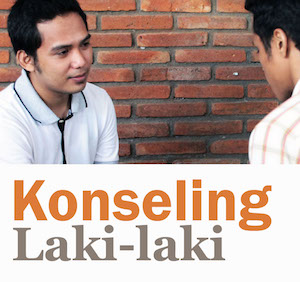By:Lalu Fadlurrahman
(Administrative Reform Team @Center for Good Governance Jogja)
Translated by Isabelle
Perhaps you have ever heard Lombok Island and a thousand mosques. Moreover, it has the unaffected beauty nature, especially with its beautiful and clean beaches. Someday, one of my college friends expressed a profound impression after visiting the Lombok Island. I was really happy when I heard the statement that my friend wanted to go back there. However, people (of course from outside Lombok) know that this beautiful island has its own story about the life of its women which are very rare. Perhaps because every time they meet a woman in Lombok, whether she becomes a trader in traditional markets, a waiter in a hotel or even a woman who preserves the unique souvenir in Lombok’s tourist spots. They only see the genuine smile of their dry lips, their wrinkled eyes which are full of hope for potential buyers. No one knows that at the same morning, before they go to work to sell their goods and their services, they get violence from their husbands both in a physical and psychological way. Violence against women in this beautiful island seems to have become widely accepted in the mainstream of the general society of Lombok. Even the phenomenon of divorce and a remarriage become usual and it seems as if there have no problems. I have my own record with this, at least I become a witness how these patterns form a circle embedded in the culture of the general society of Lombok.
When I was at third grade in elementary school, around 1996, I started to try to feel and become sensitive for what is going on around me. I have already been in a phase of being interested in questioning why things are as they are. A certain curiosity is common for human beings, especially for those at my age who don’t really understand yet what is going on around them. In the science of sociology, of course the family is the first school for the socialization of culture, values and norms that happens in the concerned society. Once, there was a husband who pulled his wife roughly while insulting her, and hit her like an African slave which I have often seen in documentaries on TVRI a long time ago. He dragged her body exactly as prisoners of war in the U.S. series “Combat” on the same channel, TVRI. My heart is bitter because I have often seen similar things in my village before. The neighbors were cheering while watching the Gladiator’s fight. I couldn’t watch it, my brain sent me a signal that something was wrong with that, even my conscience whispered that what I had just witnessed should not be like that, I would say that I understand it a little bit now. I decided to go home and I think this is better. I immediately asked my mother about that when she came home. She sighed with a short answer: “Well, however…” I am sure my mother’s feeling is not her short answer before, but that there is a big thing that she wanted to reveal but she didn’t know where to start. Maybe she realized the difficulty of changing something that has become a deep-seated custom. A habit or custom which has already become mainstream, no matter how morally one-sided, will still be accepted by society. However, it will be accepted by some groups. For example, like in the mentioned case of domestic violence, women don’t want to be trapped in things that are considered as normal in the society. That mainstream is not worth to be questioned, moreover to be opposed, and this is the most difficult problem to solve.
Indeed, a culture that is already embedded and crystallized in the heart of its adherents can hardly be changed. As revealed by E.B. Taylor in his book “Primitive Culture”: “Culture is that complex whole and other capability acquired by man a member society“. It is obvious that this culture includes the complexity of human life, ranging from knowledge, belief, law, customs, arts, and moral that later become habits that accompany the journey of human life itself. But this culture is always dynamic which means that culture or custom prevailing in the society can change or be slowly directed. Many factors affect these changes, for example the level of education, public policy, or new things that compel certain people who would follow such an ideology, for example the trend of music, clothes, food and others. Over time, especially in urban areas the society of Lombok has already shown changes to treat women appropriately which is quite significant. This does not mean that rural communities don’t experience this, they just don’t experience it as fast as the people of the city and the practice of domestic violence against women is still found. In my village for example, violence against women is still common because the level of understanding is lacking due to educational factors that have not reached the area yet. Even the phenomenon of divorce and remarriage is still happening, of course the victims are rather the women and the children who are left behind, because even if there is no physical violence. Divorce is usually sworn by the husband and leaves a deep inner pain against these women. In fact, the process of divorce begins with many scenes of violence that put the remarkable word divorce by the husband in question.
Men in Lombok have a unique track record about divorce and polygamy. For them, getting a new wife is like an achievement of boast. In fact, among them (the men) there are those who utilize marriage, divorce and polygamy as a means to strengthen the existence of their social status. Men who have many wives are considered as being materially capable or extraordinary because they already got many women. Worse yet, unlike in other feudal system areas, those who usually have several wives are landlords. Lombok is not like that. Farmers who have a little bit land or who are even just working don’t hesitate to marry more than once and usually pass through the process of the divorce in advance with the previous wife. Uniquely, farmers who want to enter the growing season rush to get divorced from their wives as there is no property left because the depleted capital is used for the purpose of buying seeds, fertilizer and rental costs of piracy. Divorced women have no right to claim the possession termed as gono gini (pension right adjustment) to finance their children. The children who are victims of divorce in Lombok are usually entrusted to their parents’ home, both on the husband’s and on the wife’s side. One sentence in the movie Bucket List was very inspiring: “When you divorce, sometimes you forget the direction of your own life”. Maybe this is what women in Lombok experience after divorce. Usually, they register directly to become migrant worker either to divert their frustration or with the classical motive of financing their children about whom their father is not so much concerned about anymore. Not to mention the risk of abuse committed by the beheaded employer who is always lurking about these weak migrant worker. This is the pattern that the writer intended from the beginning. The plight of women on the island is not completely rosy for those women. The described incidents are repeating again and again and form a pattern that has been certainly already known by the people of Lombok themselves.
Scientifically the author’s conclusion is still far from valid, remembering the lack of scientific research data that supports these conclusions. However, as a person from Lombok, the author did this observation during a long time period and still finds a lot of patterns of violence against these women after becoming an open secret among the Lombok society itself. The advancement of education and the many NGOs which are concerned about women’s rights has indeed been a bit much to erode the rate of violence against women in Lombok. However, the attention of the government and the NGOs which are centralized in urban areas lead to preventive measures against the practice of violence against women in rural and remote areas is still far from the expectations. There are two things the author would suggest to cut the pattern of violence. At first, the government and NGOs should concentrate on their work in remote areas of potential violence against women, through seminars and counseling which do not only involve women but also men for changing their mainstream about the treatment of women, especially their wives. Secondly, the government, especially the relevant agencies should encourage and enhance the role of women in a patriarchal society to strengthen their existence in a society which is not longer expected to be underestimated by men both in the economy and in politics. Both of the mentioned issues must be implemented seriously and continuously with the hope that violence can stop slowly so that the area of Lombok is not only known as a beautiful island but also a beautiful island for the fate of the women in it.







